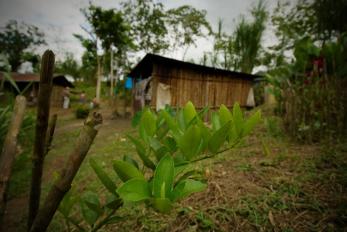Successes and Setbacks: Mediating Land Conflicts in Rural Guatemala

The majestic, mountainous landscape of rural Guatemala appears idyllic, but combustible tensions permeate the fertile terrain that indigenous farmers hold sacred and depend on for their livelihoods. Indigenous communities across the departments of Alta Verapaz and El Quiché remain vulnerable to displacement when land they live on is acquired by wealthy outsiders. Land registry title errors, competing ownership claims, and land legislation rarely favor isolated and disenfranchised indigenous communities despite their historical ties to the land. Border disagreements caused by poor government record-keeping further destabilizes the region, as indigenous groups claim overlapping parcels of land. Lacking titles to land they have long occupied, families face a vexing predicament: plant crops for subsistence and risk violent confrontation with the neighboring community or a large private landowner, or wait indefinitely for a resolution that is anything but guaranteed. Given those choices, communities often opt for risking violence.
To address the violent land conflicts in Guatemala that undermine economic productivity and jeopardize livelihoods, Mercy Corps implements a land conflict mediation program, Tierras ("land" or "earth" in Spanish). Since 2003, Mercy Corps has partnered with local organizations to promote peaceful solutions to agrarian conflict by bringing together disputants in a voluntary process that features neutral fact-finding and dialogue in participants' indigenous language. The mediation efforts are the core part of a larger intervention that also seeks to augment agricultural productivity and economic development. "Successes and Setbacks: Mediating Land Conflicts in Rural Guatemala" assesses the impact of Mercy Corps' Tierras land conflict resolution work. The findings highlight the overwhelming success of land conflict mediation in reducing violence and improving trust among communities in Alta Verapaz and El Quiché, as well as the ongoing agrarian challenges faced by struggling farmers.


